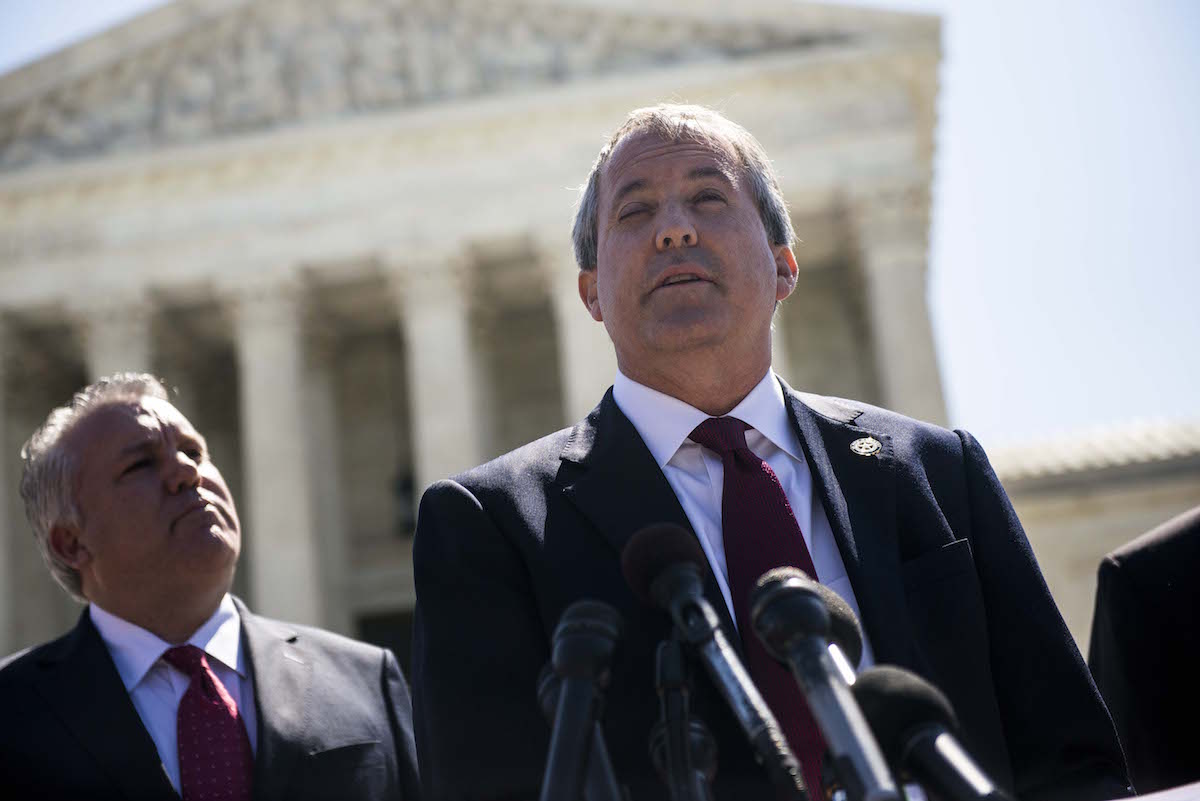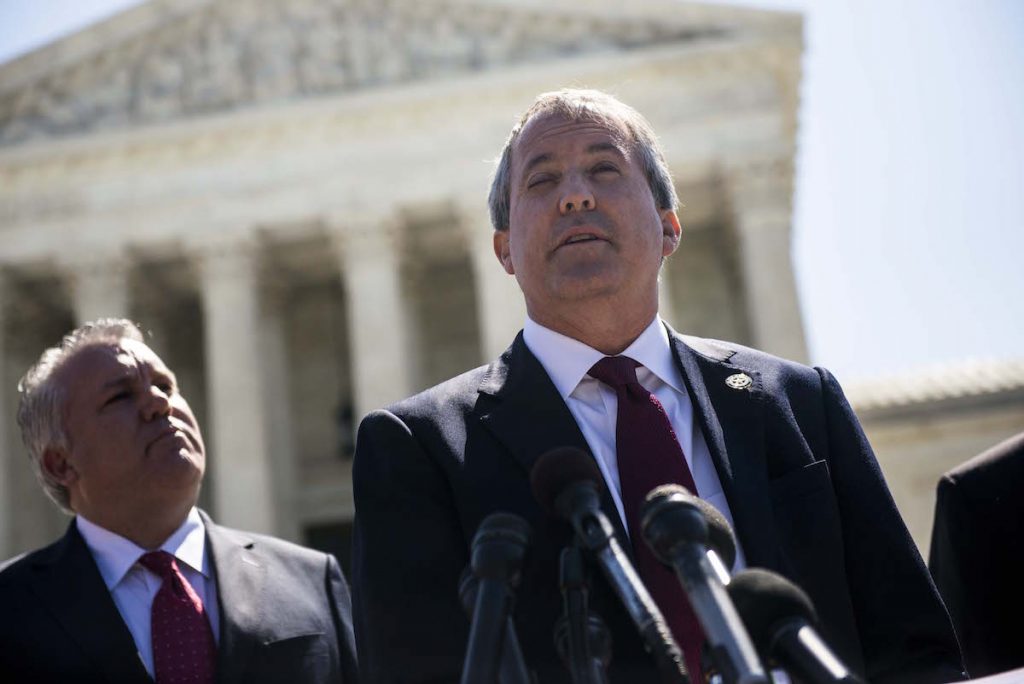Fresh on the heels of a New York federal judge‘s decision to bar a citizenship question from 2020 US Census – which immigrant rights groups argued would negatively impact vulnerable populations such as Latinos – President Donald Trump’s political allies are fighting to oppress the Latino vote in Texas.
Texas Secretary of State David Whitley sent out an advisory on Friday saying the state would flag people who had provided documentation, such as work visa or green card, to the Texas Department of Public Safety while obtaining their driver’s license. This is because DPS, as Texas Attorney General Ken Paxton tweeted, found 58,000 non-citizens have voted in one or more state elections between 1996 to 2018.
“Any illegal vote deprives Americans of their voice,” he wrote. But civil rights groups have been quick to act, calling the “voter fraud alert” a smokescreen for voter suppression.
The League of United Latin American Citizens’ national and Texas chapters are suing Paxton and Whitley, calling their actions a violation of the federal Voting Rights Act, which prohibits voter intimidation.
Thirteen civil rights organizations – including Latino political mobilization group Jolt Texas – are demanding that Whitley rescind the election advisory.
This week, the secretary of state’s office informed county officials in Texas that some of the 98,000 voters who were flagged, shouldn’t be on the list. In Harris County, home to Houston, a special assistant county attorney told the Texas Tribune that a “substantial number” of 29,822 county voters flagged by the state, were now being marked as citizens.
Other counties reported similar experiences and only Galveston County reported sending out letters giving voters 30 days to provide proof of citizenship. Failure to do so would result in voter registration cancellations.
It’s not the first time Texas has tried to suppress voters under Paxton’s tenure. Here are three other instances:
1
2016 presidential election
The 2016 presidential election was a huge upset for Democrats as Hillary Clinton lost to Republican presidential nominee Donald Trump. In a state arguably turning purple per 2018 midterm election results, voters of Latino origin were already grappling with voter suppression back then.
Jolt member and Austin entrepreneur Maria Oliveira, who has been a naturalized citizen for about a decade, had recently moved from Illinois to Texas and had to vote by mail. She said she tried registering to vote three different times in Texas but kept getting rejected after being told her Social Security number was invalid. She said she was finally approved only because she was persistent.
Oliveira is now “hyper vigilant” and brings all proper documentation with her to her polling location to avoid issues. She worries voter suppression will be an issue in 2020.
“I feel the people who are being targeted, especially the poor, immigrant working community, I know that sometimes we don’t have the resources to jump through the hoops that we need to, to vote,” she said. “That makes me very scared for the future and I think we really need to try to do something about this now.”
2
Redistricting
Abbott v. Perez is a 2018 US Supreme Court case that deals with redistricting in Texas following results from the 2010 Census. Texas’ growth, contributed in large part to residents of color, called for the drawing of new congressional and state house maps that multiple courts later found intentionally discriminatory.
The seven-year battle seeks to answer the question of whether Texas needs to redraw the maps for future elections. Advocates such as the NAACP, LULAC, Mexican American Legislative Caucus, Mexican American Legal Defense and Educational Fund successfully argued in lower courts that the maps discriminated against Blacks and Latinos.
“I hope that the court will either strike down gerrymandering and move to a system of bipartisan or independent commissions where citizens and not politicians can draw maps,” said Rep. Joaquin Castro (D-Texas).
3
Voter ID laws
The strict Voter ID laws in Texas have long drawn criticism and controversy from Democrats who argue it’s a form of voter suppression. Federal courts have found that the laws have “[disproportionately] burdened voters of color in violation of the Voting Rights Act,” according to ACLU lawyers, but the laws remain in place.
ACLU attorney Edgar Saldivar said that in his hometown of Pasadena, voters experienced voter intimidation, language access problems and limited or misleading information about polling location, all of which had a “disparate impact” on Latinos.
“For example, a Latino candidate who was on the ballot running for a school board position reported having been left off the voter rolls in his own precinct and given excuses for why he had to vote elsewhere during early voting, until he was finally allowed to vote more than 15 minutes later,” he wrote.
The candidate knew enough to be persistent about his right to vote but other Latino voters left frustrated.




